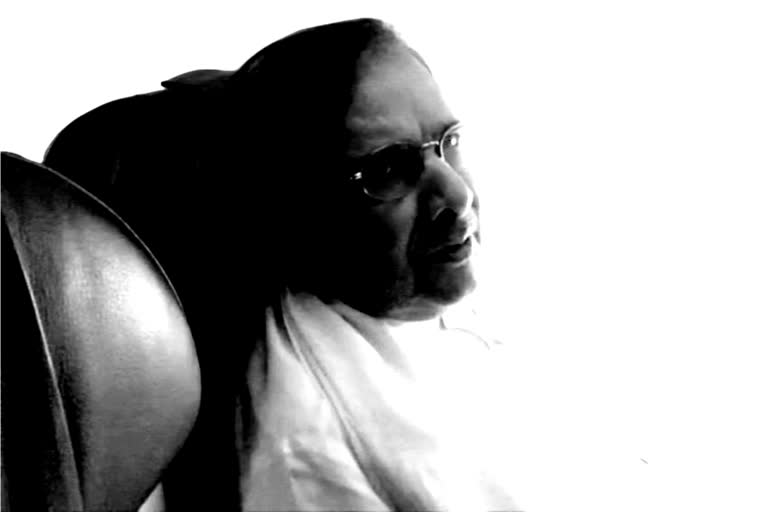New Delhi: A socialist leader who remained a prominent figure for a large part of his political life, especially in the peak era of coalitions, Sharad Yadav forged several alliances and turns of the journey saw friends turning into foes and then again returning back to forge partnerships.
In his political life spanning nearly five decades, Sharad Yadav served as a Union Minister, convener of the National Democratic Alliance and the president of Janata Dal-United. The veteran leader breathed his last on Thursday at Fortis Hospital in Gurugram where he was rushed after he collapsed at his residence in Delhi, ANI reported.
Sharad Yadav was suffering from kidney-related issues for a long time and regularly underwent dialysis. Sharad Yadav a tall socialist leader was born on July 1, 1947, in Babai Village in Madhya Pradesh's Hoshangabad. He was a prominent leader from the socialist block in parallel with other socialist leaders like the late Mulayam Singh Yadav and George Fernandes.
Sharad Yadav's political career rose during the anti-Congress movement in the 70s. The year was 1974, it was his Lok Sabha by-poll win from Madhya Pradesh's Jabalpur as the opposition candidate against the Congress which boosted its political fight against the then prime minister Indira Gandhi.
Also read: Former union minister Sharad yadav passes away at 75
After Emergency, he won again in 1977 and marked himself counted among several leaders to have come out of the anti-Emergency movement. In 1979 Yadav became the national general secretary of the Lok Dal. Eight years later, in 1987, he was involved in the events that led to the founding of the Janata Dal (JD) in 1988, under the leadership of V.P. Singh.
When Singh became prime minister of a short-lived coalition government (1989-90), Yadav was inducted into the cabinet as head of the Textiles and Food Processing Industries Ministry. Sharad Yadav served as a minister in the VP Singh government in 1989, but his highpoint came after a decade in the late 1990s, when he was in the fray against former Bihar Chief Minister Lalu Prasad Yadav in Madhepura, a parliamentary seat dominated by voters from the Yadav caste, and drubbed the latter which earned him a ministerial berth in Atal Bihari Vajpayee government.
In 1997, Yadav became president of the Janata Dal. However, in 1999 a spilt happened in the party when he chose to make the Janata Dal a component of the Bharatiya Janata Party (BJP)-led National Democratic Alliance (NDA) coalition government. A faction led by H.D. Deve Gowda strongly opposed that move and left the Janata Dal to form a new party that became known as Janata Dal (Secular), or JD(S).
Yadav remained the head of his own faction, which took the name Janata Dal-United (JD-U). He served in the NDA cabinet as the minister of civil aviation, labour, and consumer affairs, food, and public distribution. The JD(U) was reconstituted as a new party in 2003 after smaller parties merged with it.
In 2006, Yadav was elected party president. He was again elected to the Lok Sabha from Madhepura in 2009. But after the JD(U)'s defeat in the 2014 general elections, Sharad Yadav's relations with Nitish Kumar saw a change. In the Bihar assembly elections of 2017, when the JD(U) under Nitish Kumar realigned with the BJP (the two parties had been partners in the 2004 and 2009 general elections), Sharad Yadav refused to follow. Yadav who had launched his own party Loktantrik Janata Dal, merged with Lalu Yadav's outfit RJD in March 2020 which he said was the "first step towards a united opposition".



